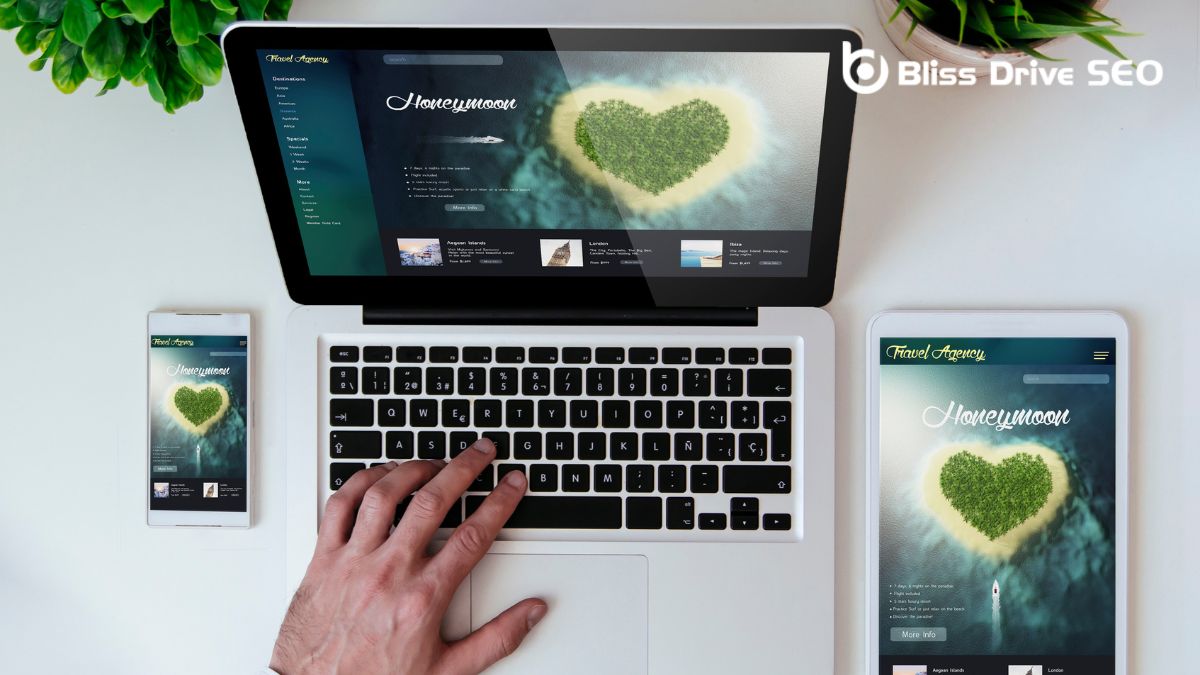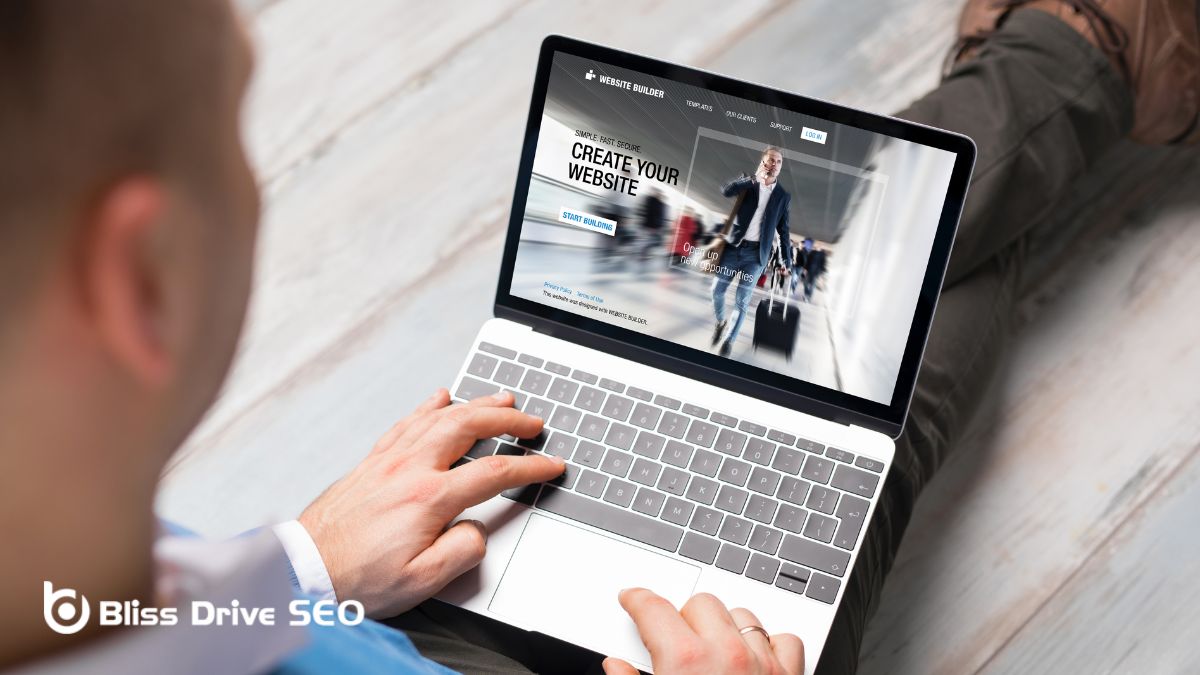Digital Marketing Services
Learn More About Us

Have you ever wondered why certain landing pageThe web page a user is directed to after clicking on an affiliate link, optimized for conversions. elements are vital for ROI? It's not just about having a pretty design; it's about strategically capturing attention, engaging visitors, and driving them to act. Elements like compelling headlines, strong call-to-action buttons, and eye-catching visuals don't just sit there—they work together to create a seamless user experience. But what makes these components so effective in maximizing conversions and meeting user expectations? And how do you guarantee they're optimized for mobile users, who are an ever-growing segment of your audience? Let's explore these questions.

When it comes to boosting your marketing campaign's success, understanding landing pages is fundamental. Landing pages are dedicated webpages designed specifically for visitors from your marketing campaigns. A well-designed landing page is crafted to prompt actions such as signing up for an email list or making a purchase, thereby improving your conversion rates.
These pages are optimized and tailored to specific campaigns, removing unnecessary distractions to keep users focused on the desired action. By aligning the content of your landing page with the keywordsWords or phrases that users type into search engines to find information. or ads that led visitors there, you enhance relevancy. This alignment increases the likelihood of conversions and boosts user engagement.
Mobile optimization is also vital, as over 58% of global web browsing occurs on mobile devices. Ensuring your landing pages follow mobile-friendly practices broadens your reach and improves the user experience.
Strategic elements like headlines, copy, and visuals play an integral role in the success of your landing pages. Each component should work in harmony to guide visitors toward taking the desired action, thereby leading to improved ROI and higher conversion rates. Understanding these fundamentals can greatly enhance the effectiveness of your marketing efforts.
What makes a landing page stand out and drive conversions? The secret lies in the right combination of key landing page elements. Start with a compelling headline that grabs attention and clearly presents your value propositionA statement that clearly explains the benefits of a product or service and why it is better than the.... This sets the stage for persuasive copy, which convinces your targeted audience why they need what you're offering.
A strong call to action (CTA)A prompt that encourages users to take a specific action, such as "Buy Now" or "Sign Up." button is essential. Your CTA should be bold and noticeable, urging visitors to take the desired action. Strong CTAs can greatly enhance conversion rates when they're clear and compelling.
Eye-catching visuals also play an important role. They enhance the user experience by making your landing page more appealing and engaging.
Strategically designed visuals, combined with well-crafted headlines and copy, create an effective landing page that captures interest and encourages action.
Enhancing relevancy is crucial to truly maximizing your landing page's effectiveness. When your landing page content matches the keywords or ads that brought users there, you're aligning with their expectations. This alignment can significantly boost your conversion rates.
By creating dedicated landing pages that reflect what users expect based on the ads they've seen, you're more likely to see those users convert.
Laser-focused landing pages addressing specific user needs or pain points don't just meet expectations—they exceed them. This approach enhances the user experience and boosts engagement.
When users feel understood and find what they're looking for quickly, they're more inclined to take action.
Targeted messaging is another potent tool. By tailoring your content to specific audiences, you'll see higher conversion rates and improved ROI.
Personalizing your landing pages based on user behavior and preferences further increases relevancy. This personalizationTailoring content and offers to individual users based on their behavior, preferences, or demographi... makes users feel valued, leading to better results.

With mobile browsing making up over 58% of global web trafficThe number of visitors to a website, often used as a measure of an affiliate's reach and influence., optimizing for mobile users isn't just a smart move—it's necessary. Mobile optimization guarantees your landing pages are accessible and functional on all mobile devices, directly impacting your audience reach and engagement. A mobile-friendly design is vital because responsive pages cater to the ever-growing mobile user base, ensuring everyone has a smooth, consistent user experience.
When your pages are optimized for mobile compatibility, you maximize conversion opportunities. Mobile users expect seamless navigation and quick load times. If your site fails to deliver, they're likely to leave, resulting in lost potential customers and diminished ROI. Optimized pages keep users engaged, encouraging them to stay longer and interact more with your content.
Moreover, responsive pages adapt to various screen sizes and orientations, providing a consistent user experience across devices. This consistency is crucial for retaining your mobile user base and driving conversions. By focusing on mobile optimization, you're not just meeting user expectations—you're also boosting your chances of turning visitors into customers, ultimately enhancing your ROI. Prioritizing mobile-friendly design is no longer optional; it's a necessity in today's digital landscape.
Enhancing your landing page's effectiveness hinges on solid conversion optimization strategies. Start with clear and compelling headlines—they're important for capturing attention and driving engagement. Pair these headlines with engaging visuals and persuasive copy to keep visitors interested and encourage them to take action.
Strategically utilize white space; it helps focus attention on your key elements like the CTA, making it easier for visitors to understand your message. Strong CTAs are essential for conversion optimization—make sure they're visible and action-oriented.
Mobile optimization can't be ignored, especially since over 58% of global web browsing happens on mobile devices. Make sure your landing page performs seamlessly across all devices to maximize conversion opportunities.
A/B testing is another cornerstone of effective conversion optimization. Test different elements like headlines, visuals, and CTAs to see what resonates best with your audience. Use data analysisThe process of inspecting, cleaning, transforming, and modeling data to discover useful information.... to gather insights from these tests and refine your strategies further.
How does the value proposition affect the landing page's ROI?
The value proposition is a concise statement that clearly explains how the product or service solves a customer's problem or improves their situation. A compelling value proposition helps to immediately grab the visitor's attention and distinguish your offerThe specific product or service being promoted by affiliates. from competitors, making it a critical factor in converting visitors into leads or customers, thereby enhancing the ROI.
What role do testimonials and reviews play in landing page ROI?
Testimonials and reviews provide social proofThe influence that other people’s actions have on one's own behavior, often seen in likes, shares,..., which helps to build trust and credibility with potential customers. By showcasing positive feedback from previous customers, landing pages can significantly lower the perceived risk for new users, encouraging more conversions and thus improving the ROI.
Why is mobile optimization crucial for maximizing landing page ROI?
With an increasing number of users accessing websites via mobile devices, a mobile-optimized landing page ensures a smooth and engaging user experience across all devices. This optimization reduces bounce rates and increases the likelihood of conversions from mobile traffic, directly contributing to a higher ROI.
How does the loading speed of a landing page impact its ROI?
The loading speed of a landing page is critical for first impressions. Pages that load quickly improve user experience, reduce bounce rates, and retain visitors long enough to convert. Google also considers page speedThe time it takes for a webpage to load, affecting user experience and conversion rates. in its ranking algorithm, meaning faster pages are likely to receive more organic trafficVisitors who come to a website through unpaid search engine results.. All these factors collectively contribute to higher conversions and better ROI.
To boost your ROI, you need to focus on landing page elements that capture attention and drive action. Compelling headlines, strong calls to action, and eye-catching visuals are essential. By aligning content with keywords, personalizing messages, and optimizing for mobile, you meet user expectations and increase conversion rates. Implement these strategies, and you'll see improved engagement and higher returns on your investment. Remember, a well-crafted landing page is your gateway to success.
